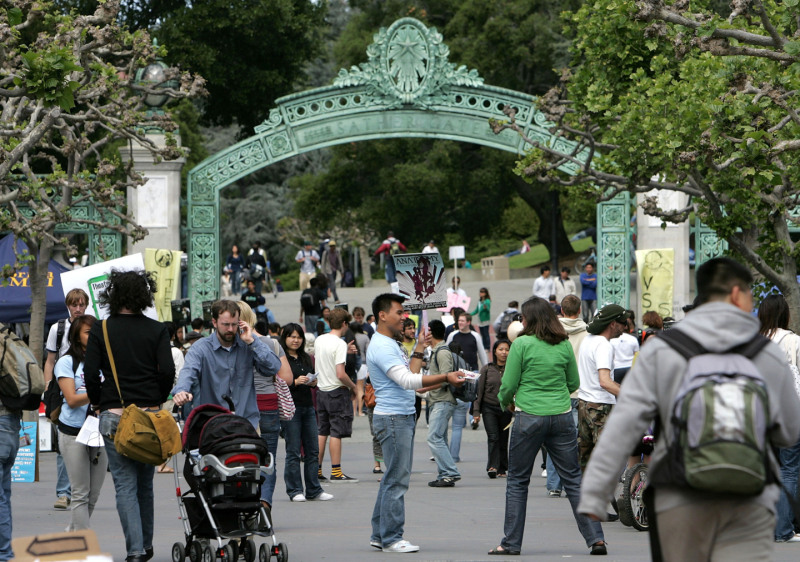But when asked whether they'd favor higher tuition or new taxes, Californians in the new survey pretty much say no to both options: 56 percent oppose an earmarked tax increase, 77 percent oppose an increase in tuition.
It's a pretty safe bet that these new poll numbers will be used by state legislators who are angry at both the recent actions taken by the UC Board of Regents in backing tuition hikes and by Gov. Jerry Brown in vetoing a spending increase from existing tax dollars.
"We, collectively, need to be creative," said Senate President pro Tem Kevin de León in a brief Q&A with Capitol reporters on Monday afternoon.
De León and his fellow state Senate Democrats are expected to roll out a UC funding proposal on Tuesday that would sidestep the potential 5 percent tuition increase approved by UC regents last month, a plan spearheaded by UC President Janet Napolitano -- and one that elected officials continue to criticize.
CSU trustees, meantime, have made other suggestions to live with the smaller-than-they-hoped for subsidy agreed to by Brown this past summer. Already under fire for what are called "success fees" at some CSU campuses, trustees have also pondered the return of caps on new student enrollment to keep down costs.
The new poll finds pessimism about the success of California's colleges and universities in preparing the workforce of tomorrow; 47 percent of those surveyed say they think the Golden State won't have enough college-educated adults ready for the jobs that will be available in years to come. And yet 76 percent say they think public higher education is very important to the quality of life and the economy in California over the next two decades.
Which Californians most worry about college affordability? Bay Area residents, says the new poll; 68 percent of those polled say it's a big problem. Least worried, it seems, are residents of the Central Valley (56 percent say it's a big problem in PPIC's poll).
Meantime, voters may not want to raise taxes specifically to fund colleges and universities, but the new survey does find some support for a few tax ideas -- which could prove to be fodder in the state Capitol budget debates of 2015 and beyond. PPIC finds 52 percent of likely voters would consider extending California's temporary Proposition 30 taxes (though the governor, as he told us during the campaign, is opposed); and the poll finds big support for a conceptual boost in taxes on tobacco and alcohol (74 percent and 68 percent, respectively).
But when it comes to paying for higher education, the poll makes it clear that Californians first want those in charge to take another look at the money already being collected. After all, the new poll finds that 59 percent of likely voters think that state government wastes "a lot" of the money paid in taxes. That perception may make it hard for them to see why they should do more to keep colleges and universities open and thriving.
